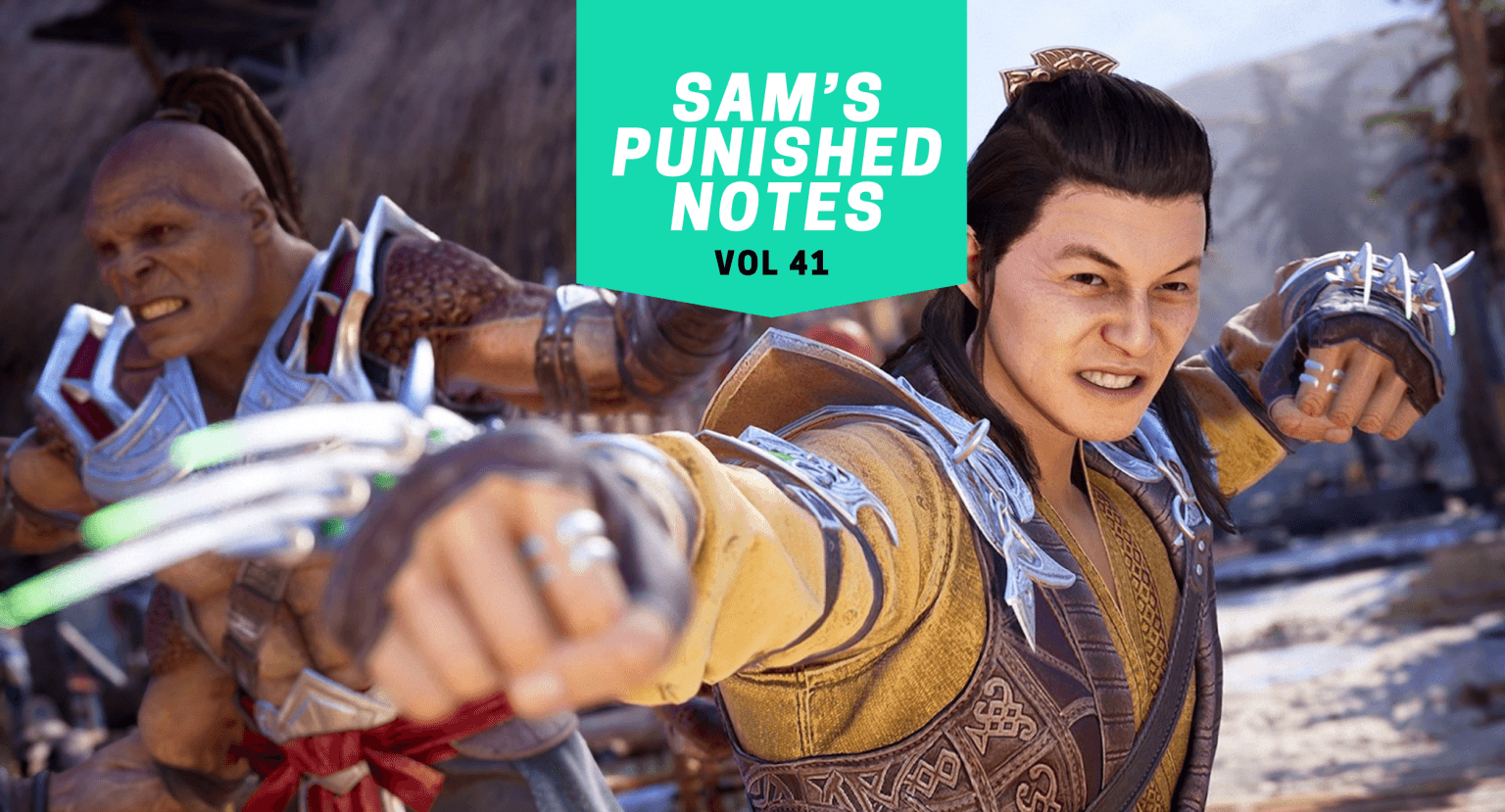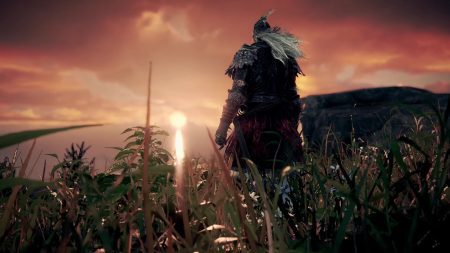Welcome back to Punished Notes! In the 41st edition of this series, I discuss my eternal fondness for snacky games, recap some notes from the playtest demo of Kirby Air Riders, share my latest music obsession that I simply can’t explain, and more. Thanks for reading!
An Ode to the “Doritos and Mountain Dew” Game
The video game industry has changed immensely throughout my lifetime. AAA budgets are higher than ever, making a flop more disastrous than ever. The number of games released each year grows bigger and bigger, making curation and discovery an enormous challenge. The very idea of the console exclusive ambles toward obsolescence, and new technologies in portable PCs and cloud streaming could potentially make console ownership a thing of the past (for the record, I don’t think this will really happen, but it’s worth monitoring).
The only gaming constant remaining from my childhood, however, is that there will always be a part of me craving Gamer-Ass Video Games, or as I fondly call them, “Doritos and Mountain Dew” games.
For context, I’m using these calorie-rich snacks as a descriptor not because of any unique admiration I have for either of them, but because their owner, PepsiCo, has made great efforts for many years to associate these products with capital-G Gamers. There’s obviously the famous Geoff Keighley photo, but the collaborations between these snacks and massive AAA blockbuster games can also be seen whenever you buy them. Halo, Call of Duty, The Elder Scrolls, and games of that ilk frequently appear on bottles of Dew and bags of Doritos, making them the de facto “gamer snacks.”
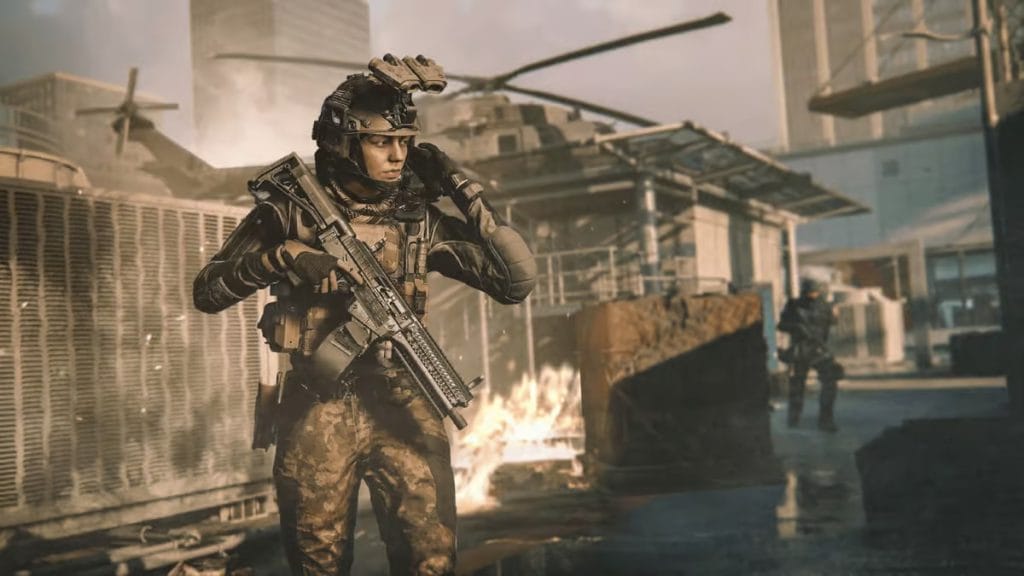
So, when I say something is a Doritos and Mountain Dew game, I don’t mean it’s specifically one of those aforementioned titles. More broadly, a Doritos and Mountain Dew game embodies a core set of video game stereotypes, often defined by unserious violence, near-infinite replay value, an epic setting, and some measure of lizard-brained mechanical repetition. It doesn’t have to be a multiplayer game, but online multiplayer in particular is absolutely a plus. Such a game can also have great writing and an ambitious narrative structure, but those aspects are not the crux of the experience, nor are they the main draw. Franchises like Call of Duty, Battlefield, Halo, Gears of War, Doom, Diablo, World of Warcraft, Starcraft, Mortal Kombat, and Tekken all come to mind here.
Doritos and Mountain Dew games embody a core set of video game stereotypes, often defined by unserious violence, near-infinite replay value, an epic setting, and some measure of lizard-brained mechanical repetition.
At a certain point, though, determining whether a game falls under this moniker largely comes down to the “I know it when I see it” model. Fallout 3 bears little resemblance to Starcraft or Mortal Kombat, but it is 100% a Doritos and Mountain Dew game, and nobody who has played it or any other Fallout game would disagree. The Uncharted series, videogamey as it is, does not fall under the category of Doritos and Mountain Dew, though, even if the game’s verbs aren’t all that different from other games that do.
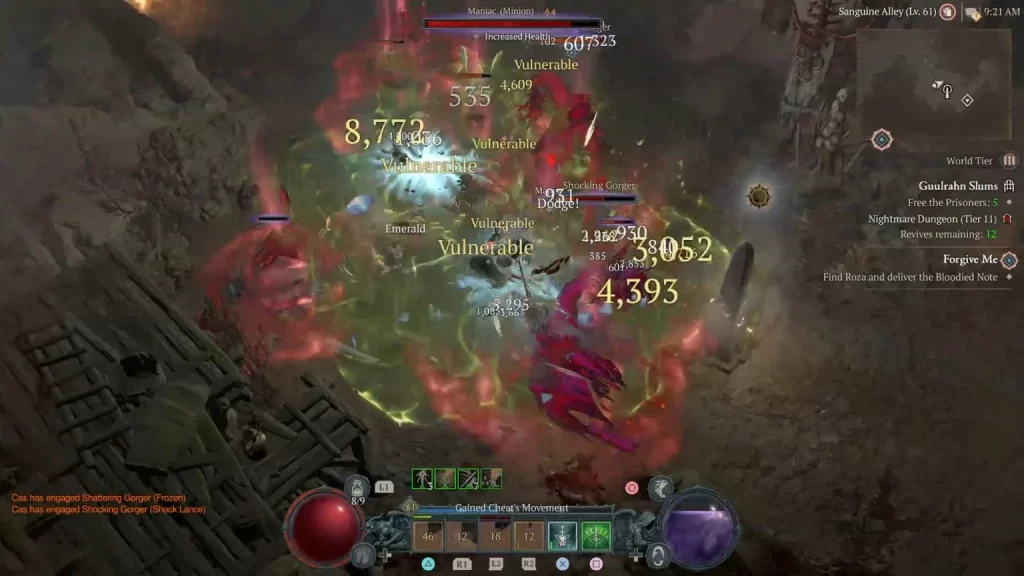
So, Why Are These Kinds of Games Important?
I’ll give you two reasons:
- Their success helped shape this industry into what it is, especially with many of the examples I’ve mentioned building upon the principles of classic arcade titles.
- As gaming constantly expands into new genres and concepts, that little part of the brain that just wants epic action and mindlessness needs to feed.
The earliest video games were conceptually very simple: Establish a fun, basic gameplay loop that can be easily understood in seconds, and present escalating and evolving challenges to the player so they’ll always have something greater to achieve. At their core, Doritos and Mountain Dew games are no different; they just get more bells and whistles with every new console generation. On a fundamental level, the excitement you get from shooting aliens in Galaga and shooting aliens in Helldivers II is roughly the same, even if there’s generally more going on in the latter. I’m not saying I could play Galaga forever, but I like that the core feeling of playing Galaga lives on, and that’s (to some extent) a good thing.
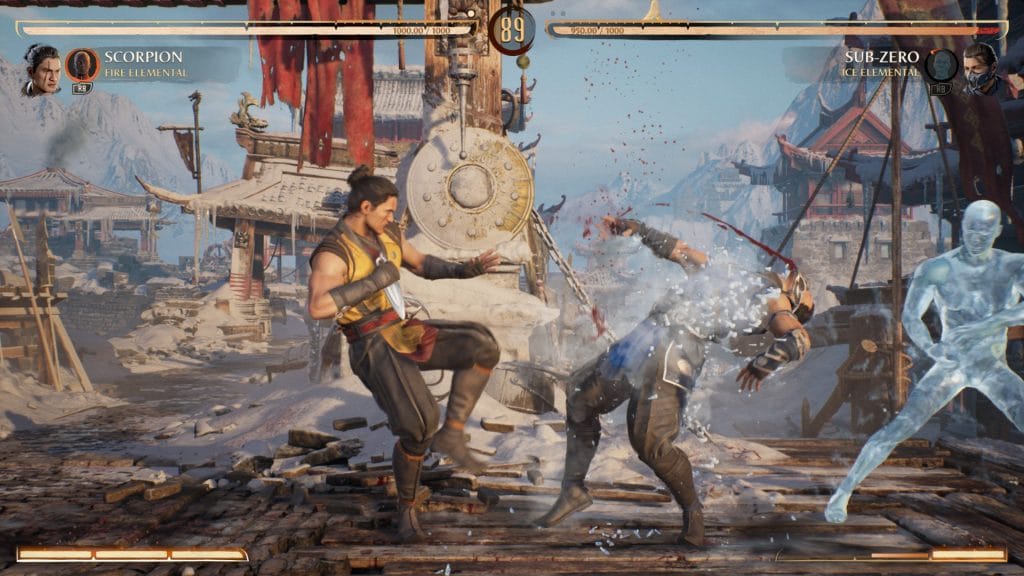
So, Why Am I Bringing This Up?
Recently, I’ve been playing Mortal Kombat 1, a sort of narrative reboot of the Mortal Kombat series that came out in 2023 but was recently added to PlayStation Plus Premium. Honestly, it might be the most Doritos and Mountain Dew game I’ve played this year.
Sure, developer NetherRealm put a great deal of effort into making its story mode actually have good writing and voice acting, and the game provides a compelling plot structure and excellent pacing. If you look past the narrative elements, though, this is very much a Mortal Kombat game: You must bludgeon your opponent to death with your bare hands (or very pointy weapons) and then attempt to commit a Fatality, i.e., perform a particularly bloody and intricately brutal finishing attack that leaves your enemy nothing more than a pile of meat and bones. It’s gross, but also kind of awesome?
Video games have changed immensely throughout my lifetime, but that one little element will always remain, no matter what trends come and go.
Mortal Kombat 1 has been a boon for me in so many ways. I’ve enjoyed my playthrough of Ghost of Yōtei, but any game of its kind — one quite heavy on cutscenes and cinematic gameplay — is bound to have its fair share of slow sections. So, whenever I got a bit bored or tired of Yōtei, MK1 was there to offer me 20 to 30 minutes of good old-fashioned GAMING, challenging me to master Liu Kang’s moveset and fight my way through the daily Towers of unique enemies. Every fighter and stage has a rich narrative backdrop, but none of that matters when you’ve got your hands on the sticks: You’re just trying to be the last person standing in a brutal battle of differing fighting styles and even deadlier animal transformations. MK1 hits a particular part of my gamer-brain that a game like Yōtei only manages to reach in small bursts.
There will always be something particularly enjoyable about playing a game whose sole purpose is to make the literal pressing of buttons feel satisfying as your avatar wreaks havoc on screen (or, in my case playing MK1 online, seeing havoc wreaked upon you). Video games have changed immensely throughout my lifetime, but that one little element will always remain, no matter what trends come and go.
Were this a longer piece, I’d probably talk more about how these kinds of games and their popularity contributed to (or potentially caused) some of the most toxic elements of gaming culture for decades. It’s absolutely, 100% worth calling out how the industry marketed their games mostly to white teenage boys and young adult men, often through the glorification of violence, misogyny, crude language, and a total disregard for anything resembling “art” in any meaningful sense. I also can’t deny that such a male-dominated culture — along with major shifts in the nature of political discourse and the broad adoption of social media as a quotidian form of communication — resulted in GamerGate, which not only was a ridiculous excuse to harm and harass women in games media and development, but also served as a Rosetta Stone of our current political landscape. Regardless of how anyone (including me) feels about the games themselves, their connection to some of the worst this industry has to offer is impossible to ignore.
Regardless of how anyone (including me) feels about the games themselves, their connection to some of the worst this industry has to offer is impossible to ignore.
Still, that soft spot in my heart for games like these will always be there. Even as I try visual novels that cover topics a Doritos and Mountain Dew game could never, or embrace a role-playing game with complex narrative choices, I’ll almost always follow that up with the snackiest snack game imaginable. My heart craved it 24 years ago when I played Halo: Combat Evolved for the first time, it craved it several years later when Gears of War came out, it craved it earlier this year with Doom: The Dark Ages, and it still craves it now. Everyone in the space — players, writers, developers, marketers, etc. — can and should work harder to create a better gaming culture unblemished by the worst bad-faith actors alive, but that doesn’t mean we have to spurn that craving.
As gaming enthusiasts, we should challenge ourselves to seek out new and unique experiences, and challenge developers to try new, ambitious ideas as well. In between those cool new things, however, it’s good to treat ourselves to some junk food every now and then.
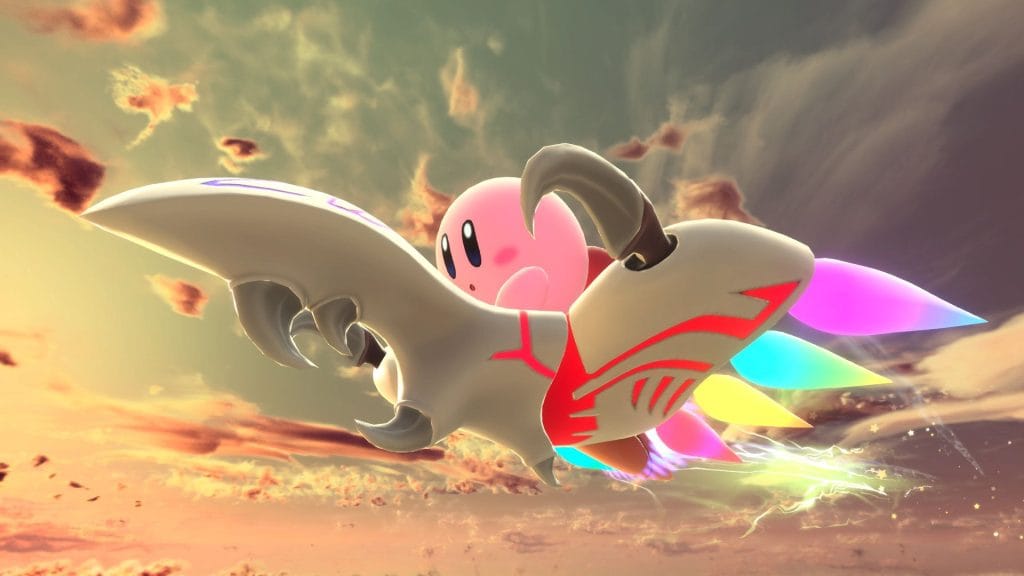
LIGHTNING ROUND!!!!!!!!!!!!!!!!!!!!!!!!!!!!!!!!!!!!!!!!!
- I gave Kirby Air Riders a shot during its playtest demo, and honestly? It 100% has the juice. It’s just as frantic and ridiculous as Kirby Air Ride, but with far more polish and tons more to do. My expectations have gone from measured to sky-high.
- Meanwhile, something I’m not that excited about is Halo: Campaign Evolved, the Unreal Engine 5 remake of the first Halo single-player campaign. I get it: Halo Studios (formerly 343 Industries) is showcasing the new tech and beginning the transition of shipping Halo games on PlayStation 5 for the first time. But… it just seems like such a boring project. New missions interest me, but this seems like a remake nobody really needed or wanted that badly. It’s never been more over for Xbox as a brand, it seems.
- Also, the last update for Halo Infinite is coming soon, and it’s kind of a bittersweet experience. I always stood by Infinite as a genuinely great multiplayer experience, one I continue to play with some frequency. Sure, the content rollout was rough at the start, but at its core it was always the kind of Halo experience I craved. Still, it’s probably time to move on and find some other multiplayer shooter to play.
- One note about Mortal Kombat 1 I wanted to get in here: My favorite “little thing” about its story mode is that you have to do multiple battles with Raiden before getting all his specials. Instead of all his killer lightning attacks, you have to use Raiden’s most fundamental martial arts knowledge to best opponents, which serves as an interesting kind of unspoken tutorial of its own. A real nice touch.
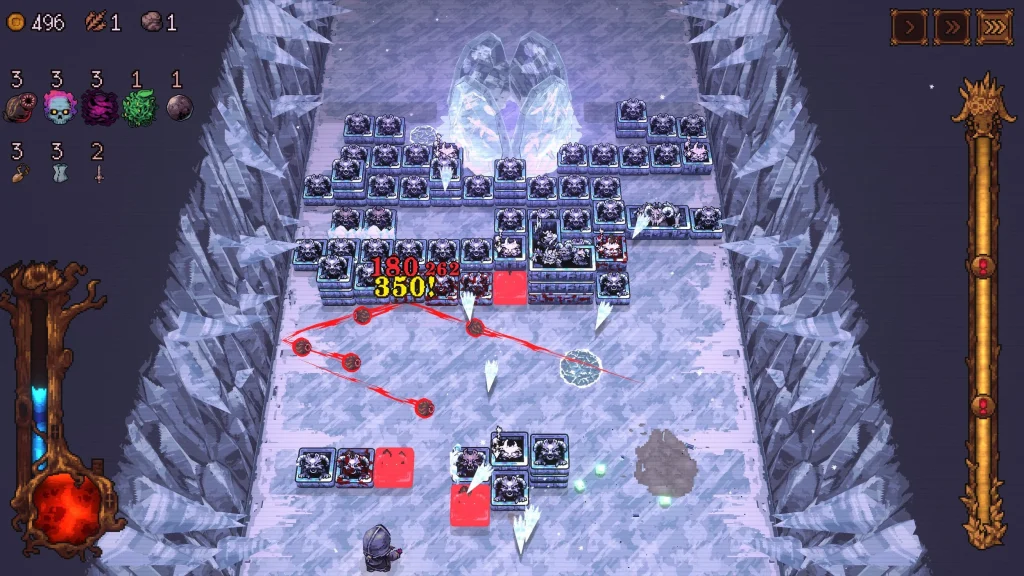
- I found Ball x Pit super exciting at first, as its combination of Breakout and Vampire Survivors gameplay was super addicting and thrilling early on. As I’ve played more, however, the novelty has worn off, as the core loop has gotten stale and the “cozy” elements feel particularly tedious.
- The first Luigi’s Mansion, which I recently played for the first time following its inclusion in the Switch 2’s GameCube Classics collection, is the exact kind of launch game we don’t get anymore: something small and focused that tries to play to the new console’s strengths without being overwhelming. LM is a fairly brief experience without much mechanical complexity, but it made clear what kinds of bizarre experiences (and improved graphics) players would get on that delightful 2001 console.
- The most bizarre change I’ve made in my life recently is that I’ve gotten really into listening to the blues. I’m not exactly sure A) why it’s happening right now, B) why it’s happening at all, and C) why I never really did a deep dive into this kind of music before. Either way, at least 80% of the music I’ve listened to over the past few weeks involves Albert King, B.B. King, Freddie King, Stevie Ray Vaughan, Howlin’ Wolf, Sonny Boy Williamson II, and Buddy Guy, and I’m not sure when or if this obsession will fade away. I think, as I approach my 35th birthday, this is a sign that I’ve reached unforeseen levels of washed.
Sam has been playing video games since his earliest years and has been writing about them since 2016. He’s a big fan of Nintendo games and complaining about The Last of Us Part II. You either agree wholeheartedly with his opinions or despise them. There is no in between.
A lifelong New Yorker, Sam views gaming as far more than a silly little pastime, and hopes though critical analysis and in-depth reviews to better understand the medium's artistic merit.
Twitter: @sam_martinelli.


